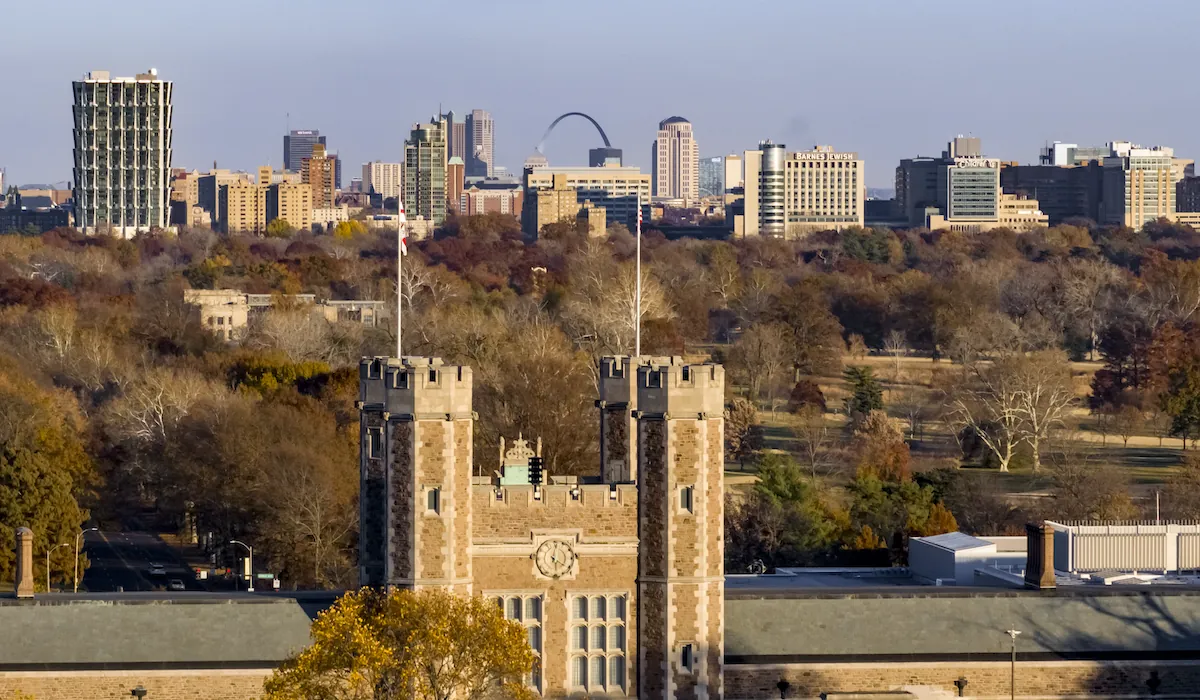St. Louis Nonprofit Faces Funding Challenges Amid Corporate Pledge Scrutiny
Forward Through Ferguson, a racial equity nonprofit, grapples with inconsistent funding. Research reveals difficulties in tracking corporate commitments to racial justice initiatives post-2020 protests.

In the aftermath of the 2014 Ferguson protests, Forward Through Ferguson emerged as a beacon of hope for racial equity and justice in the St. Louis region. Founded in 2015, the nonprofit aimed to implement recommendations from the Ferguson Commission report, addressing issues that contributed to the unrest following Michael Brown Jr.'s death.
Initially, the organization received substantial support from corporate giants and philanthropic institutions. Annissa McCaskill, the executive director, recalls the influx of donations from St. Louis-based Anheuser-Busch, the Bill & Melinda Gates Foundation, and the NBA Players Association Foundation, among others. However, this financial backing proved to be short-lived.
McCaskill notes that while many have generously supported the organization, some donors have withdrawn their pledges, citing "shifted priorities." This pattern of inconsistent funding has left Forward Through Ferguson struggling to maintain its momentum.
The challenges faced by Forward Through Ferguson reflect a broader trend in corporate philanthropy, particularly in response to racial justice movements. Following the 2020 murder of George Floyd, many companies made public commitments to support racial equity initiatives. However, tracking the fulfillment of these pledges has proven difficult.

Earl Lewis, director of the University of Michigan's Center for Social Solutions, led a research team to investigate corporate commitments to racial equity. Their findings reveal a lack of transparency in how companies follow through on their pledges. Out of 51 major U.S. companies studied, 27 made public pledges in 2020, but only a fraction provided detailed reports on their fulfillment.
Some corporations have made efforts to disclose their progress. Meta reported fulfilling its $10 million pledge to racial equity organizations and providing additional support to Black communities. Johnson & Johnson stated it had spent $80 million of a promised $100 million by the end of 2023 to address racial health inequities.
However, other companies, such as AT&T, have not responded to inquiries about the status of their pledges. This lack of transparency makes it challenging for organizations like Forward Through Ferguson to hold corporations accountable and secure consistent funding.
Recent trends in corporate giving show a shift towards providing goods and services at reduced rates, in addition to monetary donations. According to research by Chief Executives for Corporate Purpose, this broader definition of giving has increased from 24% of corporate social responsibility budgets in 2021 to 35% in 2023.
As Forward Through Ferguson continues its mission, McCaskill remains focused on the positive impact of their work. Despite the funding challenges, she emphasizes the importance of every contribution, no matter how small. "When you put pennies in a jar, it starts to add up," she says, highlighting the collective power of community support.
The story of Forward Through Ferguson serves as a reminder of the ongoing struggle for racial equity and the need for sustained commitment from both corporations and communities. As the landscape of philanthropy evolves, transparency and accountability in corporate giving remain crucial for organizations working towards lasting social change.
"Our priorities have shifted."


































